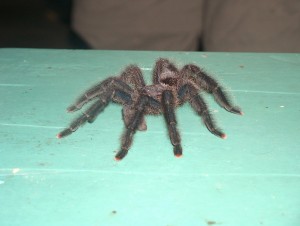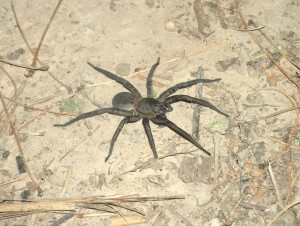Text by Sally Kneidel, PhD
Photos by Alan Kneidel
See Alan’s blog at http://goodbykneidel.blogspot.com
I love snakes. Every time I take a walk around the neighborhood, I stop and examine every squashed snake carcass I see on the road, of which there are many. I lament the loss of every one of them.
My parents, on the other hand, killed every snake they saw when I was a kid, and called all of them “copperheads.” They were protecting us young’uns, or so they thought. I didn’t realize how many people kill all snakes until I spent three years teaching elementary science. I used to bring a lot of snakes in to show my students. Every single time I did this, a dozen hands would shoot up begging to make a comment. And almost every single comment was “My daddy killed a snake last week with a shovel” or “My granddaddy chopped a snake in half in the garden.” No one ever said that a snake their family saw was a welcomed or even a tolerated sight. And all of the snakes were allegedly “copperheads.” After awhile, I began my snake lessons by banning stories about family members killing snakes; I couldn’t take it anymore. It’s a miracle that the U.S. has any remaining snakes at all.
Why are we so afraid of snakes? As a person partial to snakes, I have little patience with it.
Are girls genetically primed to fear snakes?
I read recently an intriguing study about fear of snakes, published in the journal Evolution and Human Behavior. That study is the subject of this post. Researcher David Rakison of Carnegie Mellon University looked at differences in the way 11-month-old humans react to pictures of snakes and spiders. Specifically, he looked at differences between male and female children. His findings surprised me.
Rakison showed pairs of images to the youngsters in his study. First he paired either a happy or a fearful cartoon face with a snake, a spider, a flower, or a mushroom. After that, Rakison timed how long each baby looked at new pairings of images that were different from the orignial pairings they had viewed. He wanted to see if the new pairings would seem odd to them and would cause them to look longer, out of puzzlement or curiousity.
Here’s what Rakison found
Apparently the girls more readily associated the snake or spider with a fearful face. When the girls were subsequently shown a happy face with the snake or spider, they looked at it a long time (as if trying to make sense of something surprising). With the little boys, no pairings of images were more interesting than any others. The boys did not find the snake or spider paired with a happy face surprising or interesting.

- Tarantula in Amazon rainforest by Alan Kneidel
Rakison said that this finding (if confirmed by other studies) indicates that human females have evolved an aversion to snakes and spiders. That trait evolved because women in our evolutionary history were in charge of protecting their children from the bites of snakes or spiders. Another study in Sweden found that snake and spider phobias are four times more common in women than in men.
Not so fast…
says Vanessa LoBue of the University of Virginia. She disagrees with Rakison’s findings. If girls gaze longer at the pairing of a snake with a smiling face, it’s because 11-month-old girls are better at recognizing facial expressions than male babies, and therefore understand the pairings better. This understanding would account for their surprise and longer gazes.
LoBue offers evidence from her own studies that 5-year-old girls recognize threatening and nonthreatening expressions faster than boys. Do 11-month-old girls have that capacity too? We need to find out! What do you think?
Maybe women are squeamish because of gender stereotypes
I personally don’t believe that girls are “primed” genetically to be more fearful of snakes and spiders. I think it’s cultural, that little girls learn to act squeamish and fearful by watching older females. I believe women often behave as though they’re fearful and vulnerable because that’s the sexy female prototype that’s been promoted by our Western culture since who knows when. Powerful fearless women are, in popular culture, not widely admired. That’s changing, but slowly. Women are still encouraged (often very subtly) to appear helpless and afraid like Olive-Oyl, while Popeye eats his spinach and beats the tar out of Brutus. I agree with LoBue. Rakison’s results can be explained by female children’s acuity in reading human facial expressions.
Or maybe girls already been affected by cultural expectations for their gender, at the age of 11-months!

Spider in Bolivia by Alan Kneidel
I would love to hear reader comments.
Sources:
David Rakison. “Does women’s greater fear of snakes and spiders originate in infancy?” Evolution and Human Behavior. Volume 30. November, 2009.
Bruce Bower. “Girls but not boys may be primed for arachnophobia, ophidiophobia: Fear of crawly, slithery things could begin before first birthday. Science News, September 26, 2009.
Photographer is Alan Kneidel of http://goodbykneidel.blogspot.com







